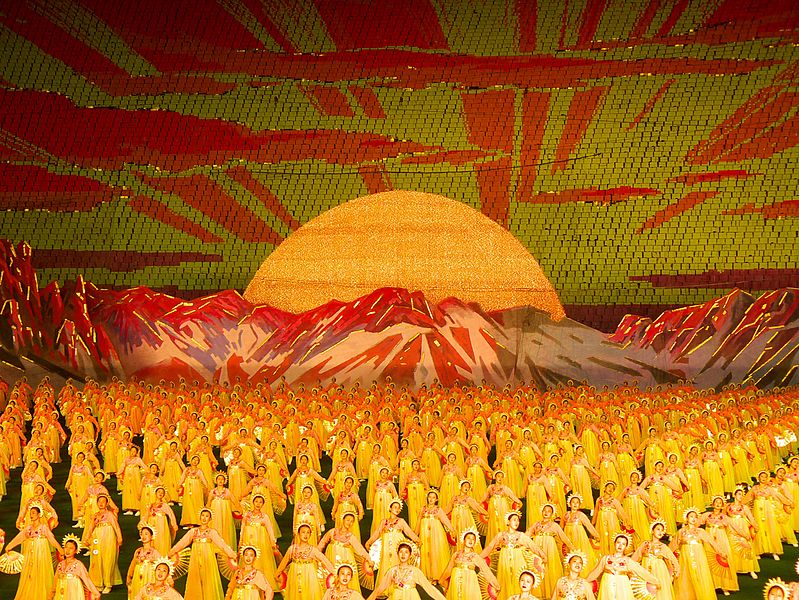North Korea and the Food-Aid Dilemma
The situation in North Korea is steadily worsening. Washington's stated commitments to humanitarianism ring hollow.
 Despite incessant pleas in the past nine months by UN agencies and American and international humanitarian organizations to meet the urgent food needs of numerous women and children in North Korea, the Obama administration has refused to provide help. It has repeatedly declared that it is studying the problem, but no conclusive decision has been made.
Despite incessant pleas in the past nine months by UN agencies and American and international humanitarian organizations to meet the urgent food needs of numerous women and children in North Korea, the Obama administration has refused to provide help. It has repeatedly declared that it is studying the problem, but no conclusive decision has been made.
The latest sign of government reluctance was captured in an interview last week in South Korea with USAID administrator Rajiv Shah, who claimed that the government was still attempting to “identify and complete an assessment of whether food aid assistance can effectively be provided in a manner that is transparent and targeted and reaches intended beneficiaries and avoids the risk of graft and misappropriation.”
Shah’s statement is similar to what U.S. State Department deputy spokesperson Mark Toner said in August when Washington asserted it was still assessing “whether [the U.S.] can provide food assistance [to North Korea] in a way that’s consistent with [U.S.] policy.” In making this statement, Toner was already responding to concerns raised by months of government inaction; Shah’s suggestion that the government still needs yet more time to make a decision hints that other policy concerns are paramount and that disregard for humanitarian needs is the price.
According to Shah, the problem is simple: it is Pyongyang’s refusal to establish “conditions for effective humanitarian assistance and support.” Without context, one might be led to believe that North Korea is refusing any monitoring of the food-aid distribution and disallowing any contact between its citizens and international organizations.
Quite to the contrary, this is not the case even in recent South Korean experience. In August, representatives from the Korean Council for Reconciliation and Cooperation, a South Korea-based NGO, visited North Korea to observe and monitor the distribution of aid to the people of Sariwon; a senior South Korean official monitored private wheat deliveries earlier this month. In October, after visiting the provinces most affected by this year’s flooding, representatives from U.S.-based NGOs Mercy Corps and Samaritan’s Purse noted that they were very satisfied with the monitoring and oversight of the food aid. They not only delivered food aid to the intended needy but also expressed confidence they can continue to do so. Other countries have ponied up funds for food, which reportedly is being properly delivered via safeguards that were agreed upon between Pyongyang, the World Food Program and the European Union.
For all the fastidiousness displayed by the U.S. government, there is no indication that it has recently discussed in detail with North Korea provisions for adequately monitoring food aid. The last agreement reached was in 2008 under a Republican administration.
Meanwhile, NGOs, international agencies and numerous independent scholars have continued to warn against letting conditions further deteriorate in North Korea. UN undersecretary general Valerie Amos returned from North Korea in October reporting “terrible levels of malnutrition” wreaking havoc, in particular among the very young. By studying the flux of prices in the North Korean market, Marcus Noland of the Peterson Institute for International Economics has pointed out how the price of grain is continuing to rise even after the harvest, unlike in other years, painting a foreboding picture of the winter to come. Alongside accounts by NGOs of hunger-induced illnesses and lack of medical supplies, the signs of a worsening humanitarian situation could not be clearer. The consequences are alarming. In the short term: many children will die or be permanently blighted.
Meanwhile, as Mr. Shah talks about the necessity of avoiding graft and misappropriation in our aid programs, huge amounts of American aid go to an Afghan government permeated by graft and corruption.
Certainly North Korea does not rank with such countries as Somalia in terms of the magnitude of its urgent food requirements. But its needy population is much smaller and stationary. The infrastructure for delivery, albeit in need of maintenance, is still functioning.
Yet the U.S. government sticks to a public stance that it is still considering food aid for North Korea, holding this out rather than stating (understandably) the real reasons for not providing such aid, namely that North Korea is genuinely an abhorrent country, that there is no domestic political benefit in providing aid, and that both Congress and our ally South Korea have been vehemently opposed. The United States is seeking political benefit from the North, but can we continue to insist on our commitment to humanitarianism while letting politics dominate in this case? The gap between principle and practice has grown ever wider.
Morton Abramowitz is a senior fellow at The Century Foundation.
Image: Kok Leng Yeo
